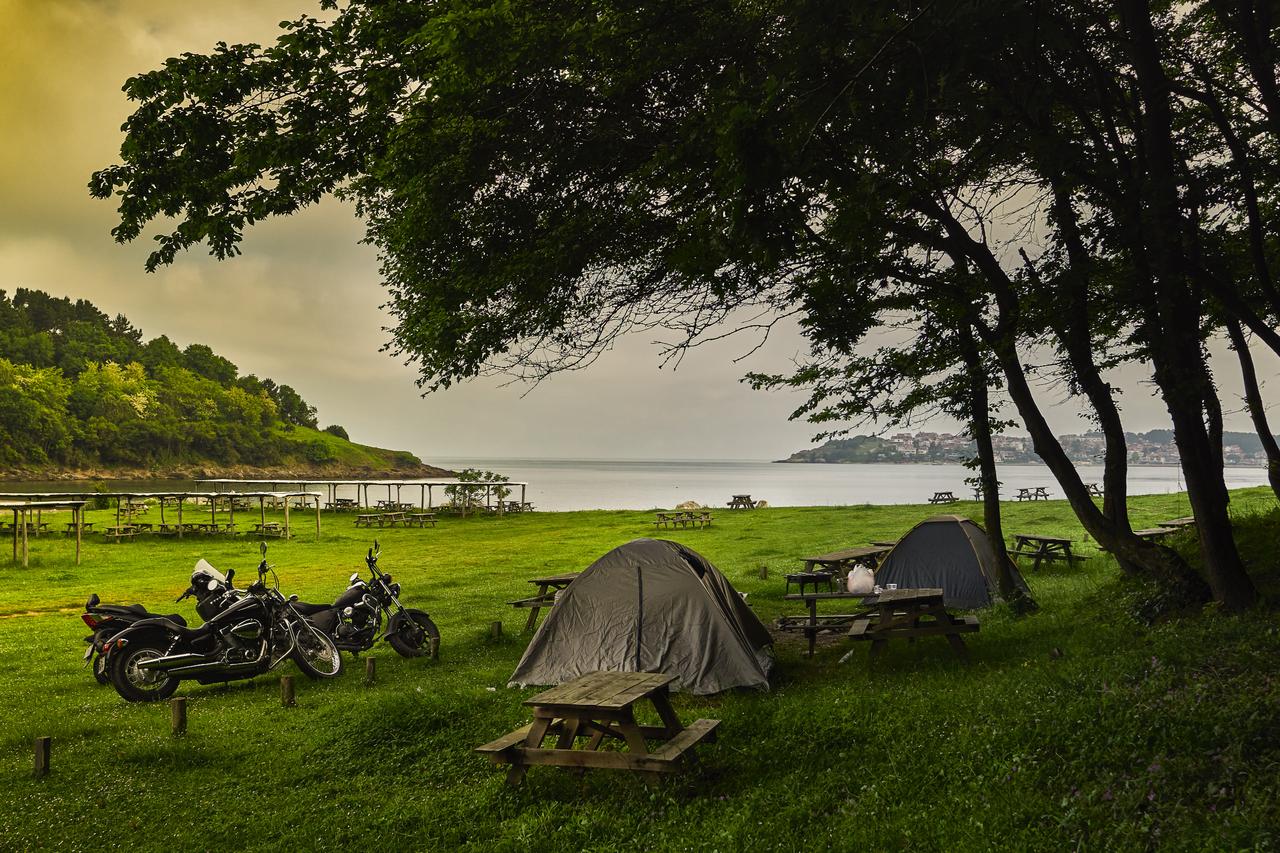
Camping in Türkiye gives travelers a way to step away from crowded resorts and reconnect with the land itself.
From pine-covered coastlines to high mountain lakes, the country offers practical and varied options for people who want to sleep outdoors without sacrificing safety or access to basic services. Some bring their own tents and supplies. Others prefer to stay in managed sites with food, electricity, and showers.
This guide introduces five camping regions across Türkiye, along with one bonus destination in Central Anatolia for travelers interested in something different.
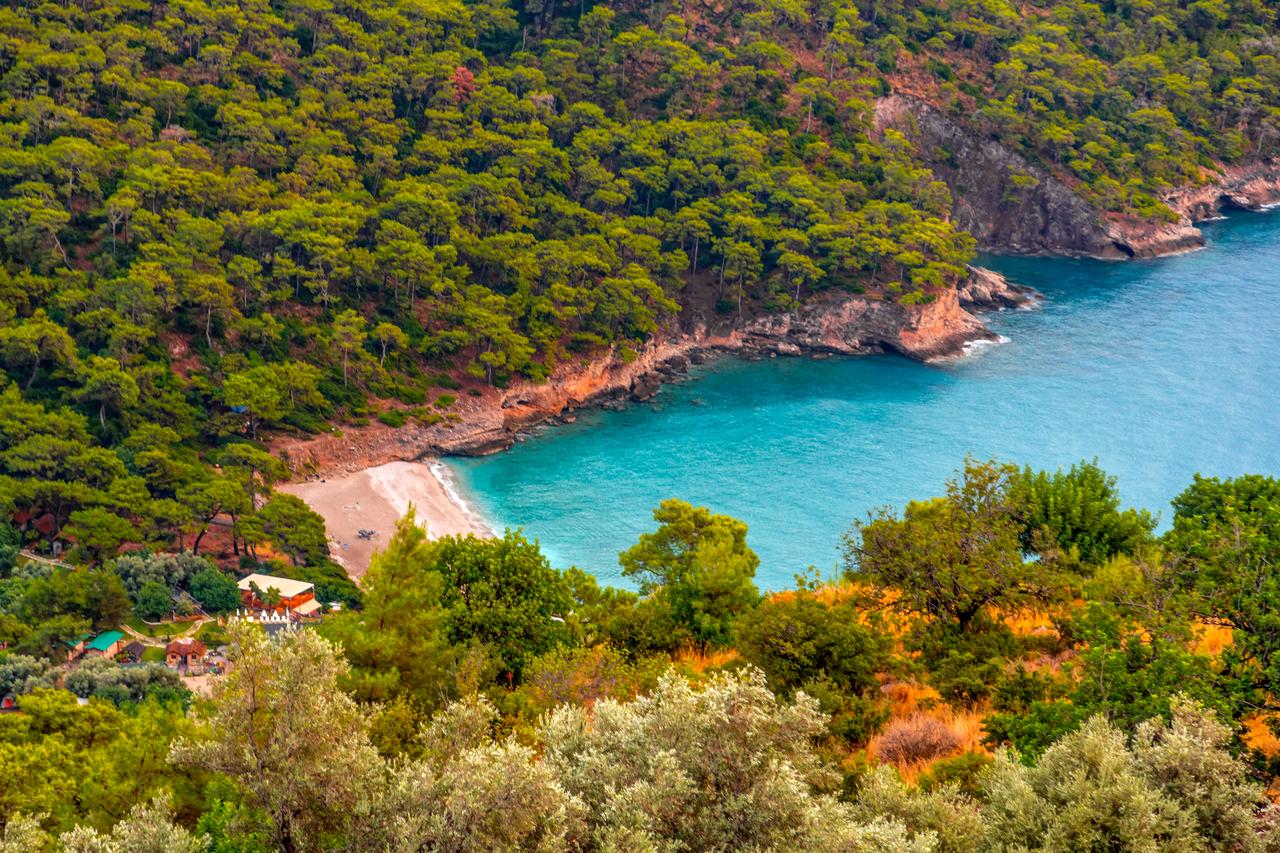
The Aegean coastline draws campers who want direct access to both sea and forest.
Kabak Koyu near Fethiye provides one of the most authentic outdoor experiences in the region. The area lies on the Lycian Way and combines pine-covered cliffs with a quiet bay suitable for swimming and hiking. Visitors reach the site via a steep path or local shuttle. Campers can rent bungalows or pitch their tents in designated spaces.
Just uphill, Babakamp sits at an altitude of 800 meters (2,625 feet) and offers a structured forest environment. The site includes wooden bungalows, stone houses, outdoor yoga platforms, massage areas, and quiet corners for meditation. Guests can join daily activities or keep to their own routines. The site accepts both personal camping gear and vehicle access.
Further west, Akyaka stands out with its mix of shade and sea breeze. Located 18 kilometers (11 miles) from Mugla, Akyaka Orman Kampi offers direct access to the coast, as well as electricity, shared showers, and on-site food vendors.
The site sits near the Azmak River, where visitors can rent canoes or dine in riverside restaurants. Several small coves along the Gulf of Gokova allow for more isolated camping setups within legal boundaries.
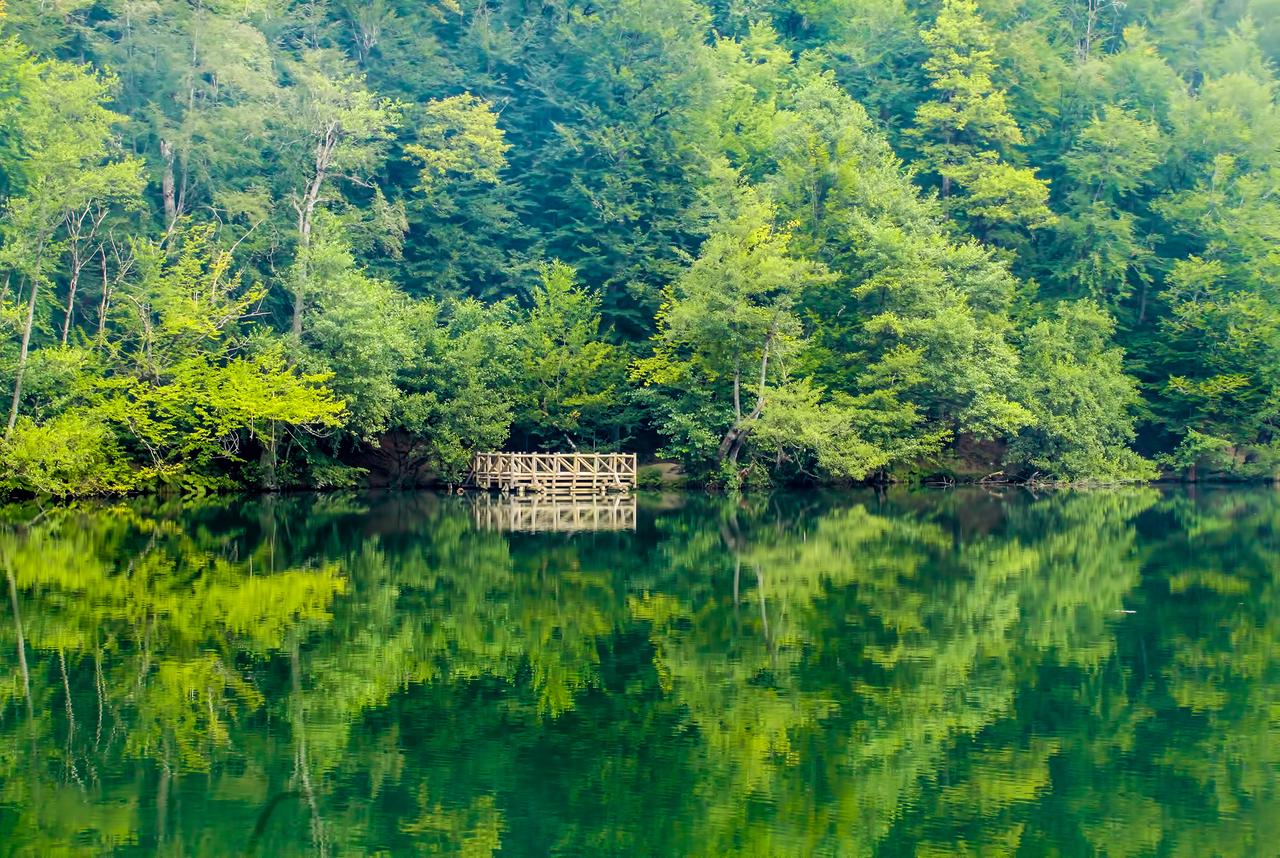
Travelers arriving in Istanbul can still find remote outdoor settings without venturing too far from the city.
Ballikayalar Natural Park in Kocaeli lies just 45 kilometers (28 miles) from central Istanbul. The park features a mid-length trekking trail, a narrow gorge, and a natural freshwater pool at the end. Campers can use basic facilities at the entrance or hike deeper into the forest and find more private terrain.
To the east, Yedigoller National Park in Bolu offers one of Türkiye’s most consistent forest camping environments. The park includes seven interconnected lakes surrounded by dense forest, walking paths, and wildlife.
Visitors camp in designated areas with enough space for large groups or family tents. The site allows year-round access and remains popular in spring and autumn for its cool weather and changing colors.
Mount Ida, located between Balikesir and Canakkale provinces, supports several types of camping setups. Many travelers begin in Edremit and move into the hills along rivers and waterfalls. Sites near Ayazma and Mihli Selalesi provide access to freshwater, pine groves, and moderate elevation.
Visitors who prefer established parks often stay within Mount Ida National Park, which maintains clear trails and permits legal camping in selected zones. The area’s elevation reaches up to 1,774 meters (5,820 feet), offering cleaner air and lower summer temperatures.
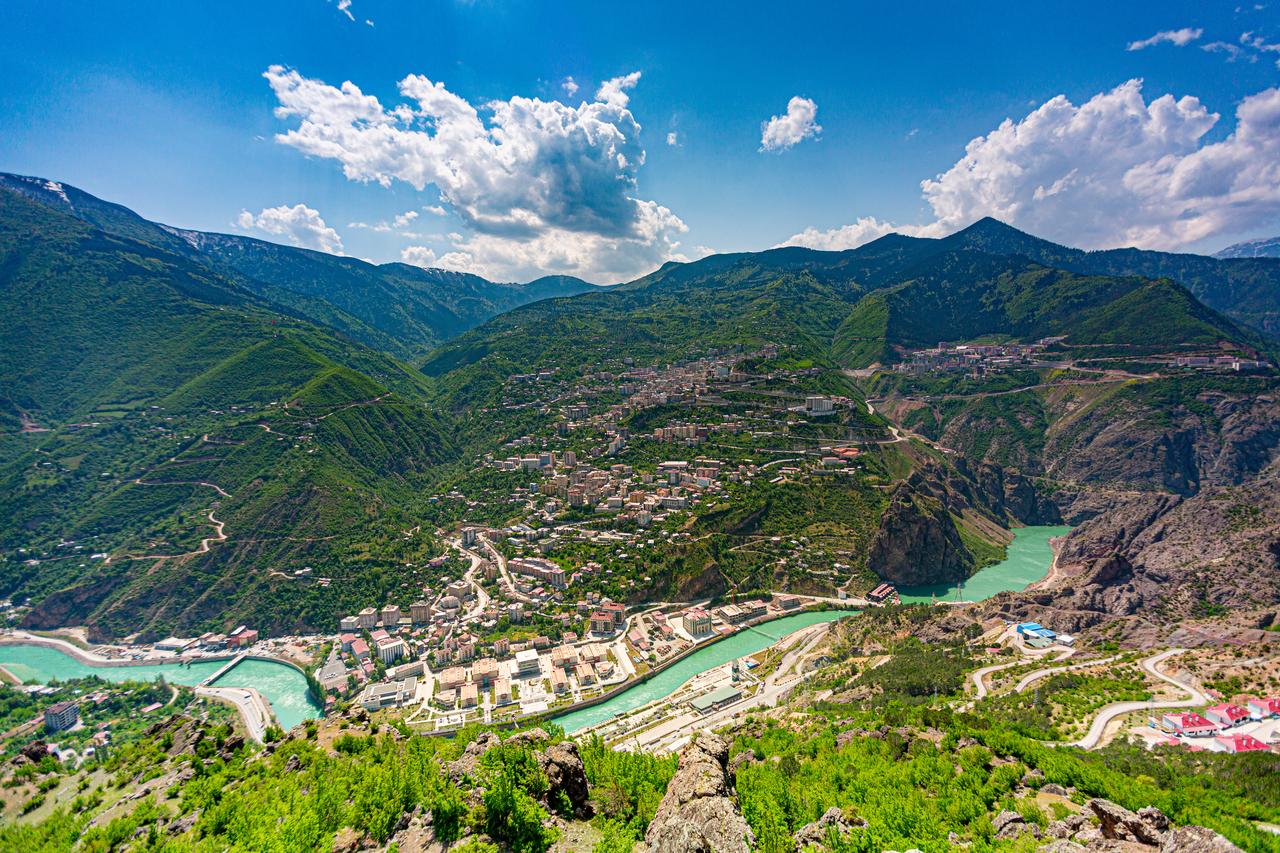
Eastern and southern Türkiye offer camping routes with both environmental variety and outdoor sports. In Artvin, two separate Karagol sites lie in the districts of Borcka and Savsat.
Both sit at altitudes above 1,400 meters (4,600 feet) and feature cold, reflective lakes surrounded by fir and spruce forests. Visitors may camp in marked areas near the road, but they must bring their own tents and supplies. Karavan entry is possible in some sections. Rental boats and small restaurants along the lake allow for relaxed afternoons after morning hikes.
To the southwest, Gito Yaylasi in Rize stands at 2,100 meters (6,890 feet) and allows for camping among highland meadows. The area lacks formal facilities but offers a quiet plateau surrounded by panoramic views and traditional wooden homes. Campers must arrive with full equipment, including cold-weather gear, even in summer. Clear skies often allow for stargazing above the clouds.
Further south, Adrasan in Antalya provides one of the region’s best low-key beach towns for camping. This protected area restricts large construction, keeping the shoreline accessible and quiet. Several campsites and small guesthouses offer space for tents and access to meals, restrooms, and beaches. Nature paths and small coves extend from the main bay, allowing campers to combine swimming with short hikes.
Koprulu Kanyon, also in Antalya province, serves both rafting groups and campers. Located in the Manavgat district, the canyon supports camping facilities along the Koprucay River. The site offers electricity, food vendors, and gear rentals. Campers can join river sports or remain near the forest areas for calmer stays.
Nearby, Geyikbayiri attracts climbers and backpackers who follow the Likya Yolu trail. This area lies near Konyaalti, about 28 kilometers (17 miles) from Antalya city center. Guesthouses and camping plots operate year-round, offering electric hookups, meals, and trail access. Visitors can choose bungalows, bring tents, or use camper vans depending on their needs.
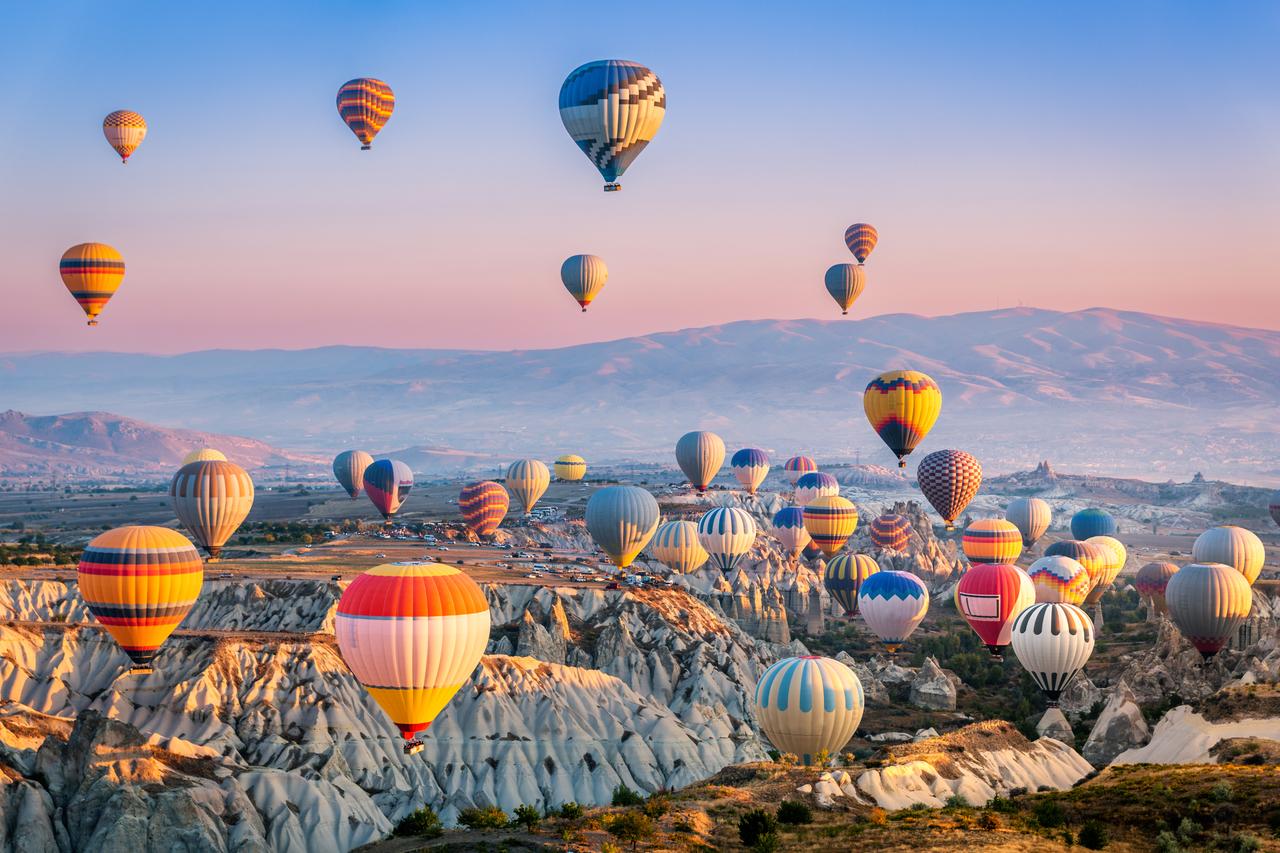
In Nevsehir, the village of Goreme opens up a different kind of camping opportunity.
While the area is best known for cave hotels and sunrise balloon rides, several campsites exist near the village center. These sites accept tents and camper vans and offer access to water, bathrooms, and electricity. From your tent, you can watch hundreds of balloons float over the rock formations each morning.
Goreme’s landscape includes soft volcanic rock, narrow valleys, and ancient cave dwellings carved into the slopes. Campers walk directly from the sites into natural formations like Love Valley or Zemi Valley.
The site sits at an elevation of roughly 1,100 meters (3,610 feet), which keeps nights cool even in peak season. For travelers interested in cultural history, geology, and unique terrain, Goreme offers a distinct final option to complete a nature-focused itinerary in Türkiye.
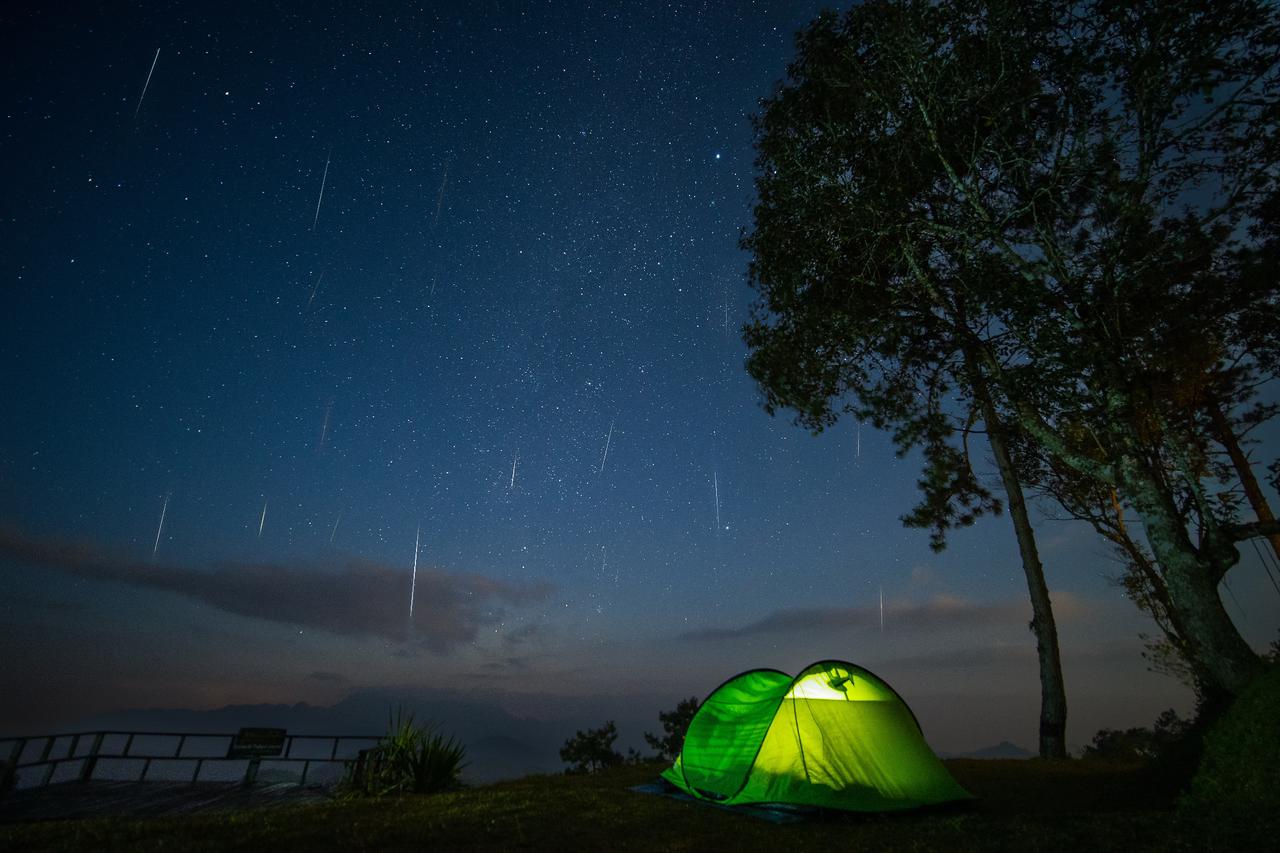
Türkiye offers one of the most diverse natural landscapes in Europe and the surrounding regions, which makes it well-suited for camping at every level, from first-time travelers seeking comfort to experienced campers searching for isolation.
The coastal regions provide access to beaches and forested shade, while the highlands and lakes present quieter alternatives with cooler temperatures. Sites near major cities like Istanbul and Antalya give weekend options, but remote areas like Karagol, Gito, and Goreme reward those willing to travel further inland.
Before setting out, check local regulations on camping zones and prepare according to terrain and altitude. While many sites offer electricity and food options, others require full self-sufficiency.
Regardless of your route, these locations give direct access to nature without depending on overdeveloped resorts or commercial tour groups, making Türkiye one of the most accessible and varied countries for outdoor travel in 2025.